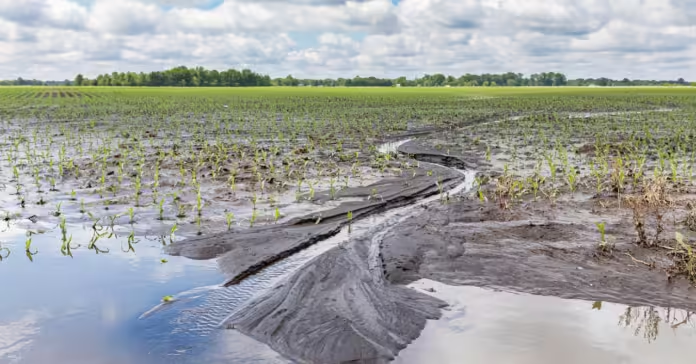Yields of key agricultural commodities (fruits, nuts, corn, sugar, vegetables, wheat) grown in these states have declined due to extreme heat and reduced soil nutrients. The supply chains through which these products are typically transported have been deflected at various points by storms that disrupted land and sea transport. Preparing for these various external factors requires supply chain intermediaries and product distributors to anticipate future cost increases and take steps early to supplement their margins.
You may notice that juice and frozen drinks (19.5%) and sugar and related substitutes (6.4%) stand out among the drivers of inflation in May. It’s probably no coincidence that Florida, a major producer of oranges and sugar, has been hit hard by these exports due to climate change-driven extreme weather and invasive crop diseases. Economists expect orange juice prices to remain high this hot, wet summer.
(Incidentally, climate effects may also be influencing the current dynamics and spread of avian flu throughout America’s livestock population, and you already know how that affects meat and milk prices.)
But this isn’t just about food. It’s about all the basic building blocks of modern life: labor, migration, travel, materials for building homes, transportation, power generation, basic goods. The prices of wood, copper, and rubber are fluctuating wildly due to climate change. Even chocolate prices have skyrocketed recently due to the effects of climate change on cocoa bean harvests in Africa. The outdoor workers who provide these goods are suffering health hazards from harsh weather, and the recent record influx of immigrants from vulnerable countries, while a boon for the U.S. economy overall, is in part a response to climate damage in their home countries.
Climate-related price hikes are showing up in other ways, too: Many homes are located near the coast, especially in the Gulf Coast and Northeast, and Americans love beaches and big houses.very Even with (heavy) federal funding, it’s too expensive to build these elaborate mansions and keep rebuilding them after each increasingly violent and frequent storm, which is why private insurance companies don’t want to deal with them anymore, and the costs are passed on to taxpayers.
With all the economic indicators that top Americans’ minds being thrown off balance by climate change, perhaps it’s time to rethink how traditional economics works and how we perceive its impacts. Gone are the days when extreme weather was rarer and more predictable. Their power and causes are not beyond our ability to adequately monitor, but they are certainly harder to track. We cannot stretch the simplest economic models to fix them, nor can we continue to ignore the obvious connections between current severe weather, climate change, and our everyday products.
Thankfully, some actors are finally taking new approaches, albeit belatedly. Reinsurer Swiss Re acknowledges that its insurance industry does not adequately factor catastrophe and climate risk into its calculations and is working to rethink the equation. Advances in artificial intelligence, while energy-intensive, are helping to predict extreme weather events and improve risk forecasting. At the state level, insurers are pushing back against local policies that inexplicably prohibit pricing climate risk into models, and a new law in Florida is calling for greater housing market transparency about local flood history. The New York State Legislature is trying to ban insurers from supporting the fossil fuel industry, which is responsible for much of the ongoing crisis.
After all, this is not a world in which climate change affects the economy, and in which voters who prioritize economic and inflationary concerns are responding to something other than climate change. This is a world in which climate change affects the economy. teeth economy.


